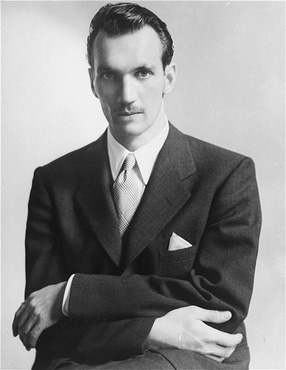Jan Karski's Biography


Jan Karski was born Jan Kozielewski to a Catholic family on April 24, 1914 in Lodz, Poland. His early years were molded by a strong mother, who taught him about tolerance. He credited her with instilling in him the character to do the right thing. As a man of conscience, he risked his life to save others and became a hero of World War II.
When the Nazis overpowered Poland in 1939, young Lt. Karski found himself on a Nazi prison train, but he refused to give up. He was determined to fight back so he jumped form the train during the night, doggedly making his way on foot to fight with the Polish Underground.
Time and time again, he risked death to carry messages to England and France. The Nazis captured him and brutally tortured him, knocking out most of his teeth, yet he refused to reveal the names of his colleagues. Fearing he could not stand further beating, Jan Karski tried to kill himself to save his friends. Resistance fighters risked everything to save this courageous and valuable man, and 15 of them were executed following his escape.
Karski planned another trip to England, met with Jewish leaders, and agreed to visit the Warsaw Ghetto to make an eyewitness report to the Allies. His senses were completely overwhelmed as he described the Ghetto: people dying in the streets, and children too weak to move. He gave a report to Anthony Eden and later to Franklin D. Roosevelt, along with numerous interviews, pleading for some sort of action to be taken to stop the Holocaust. The memories of people screaming and dying in the Ghetto would give him nightmares for the rest of his life.
Karski stayed in the United States because the Nazis had discovered his true identity. If he were to go back to Poland, they would have executed him.
Fearing that the Communists would dominate Poland, Karski rallied support for a free Poland. He wrote brilliant articles for major publications that laid out specific arguments and was supported by the most prominent publishers in the United States. Furthermore, other national journalists joined him in supporting the Polish government in exile. When the Communists came to power, Karski refused to return to Poland until they were replaced.
Karski became a distinguished professor at Georgetown University and was loved by his students and colleagues, most of who never realized that Karski had the moral courage to try and save lives of millions of Jews. He was recognized by many countries and received the highest honor from his native country, Poland. Karski was also made an honorary citizen of the State of Israel and is commemorated on Israelís Avenue of the Righteous.
